| ‘Parts of Speech’ is the soul of language. They are very essential ingredients used in making meaningful phrases and sentences. A real beauty of grammar is obviously the Parts of Speech, as they show us how words relate to each other. . Part of Speech is a category of words which explains how the word is used. It shows how words are assigned with their syntactic functions. It is the major aspect of language which enables us to think about the meaning as well as function of the word. It is very important to note that each word functions independently in sentences. . Due to their different natures and functions in the sentences, words are categorized into eight parts: NOUN, PRONOUN, ADJECTIVE, VERB, ADVERB, PREPOSITION, CONJUNCTION & INTERJECTION. |

| • NOUN |
| Noun is the word that refers to a thing, a person, a place, an idea, a quality or an event. e.g. Box, House, Julie, Benjamin, London, New York, Joy, Honesty, Brilliance, Generosity, Day, Lightning etc. |
| TYPES OF NOUNS |
Proper Noun A Noun that indicates a particular thing, person or place. It always remains in capital letter. e.g. Paris, Dubai, Arthur, Javed, January, Monday, Earth, Britain, Amazon, Titanic, Sony, Samsung etc. |
Common Noun A Noun that indicates a thing, idea, person, animal or place in a class or group. It doesn’t remain in capital letter. e.g. book, chair, phone, father, teacher, man, baby, shop, lion, elephant, bird, city, nation, garden, love, anger etc. |
Collective Noun A Noun that indicates a collection of people, things, animals etc. e.g. herd, group, crowd, class, hospital, bunch, team, colony, family, gang, set etc. |
Material Noun A Noun that indicates a material from which different things are made. It is not counted in numbers. e.g. water, oil, gold, cotton, rubber, wool, sand, honey, meat, plastic, air, coal, chemical etc. |
Abstract Noun A Noun that indicates an idea, quality, feeling or concept. They cannot be seen or touched, they can only be experienced. e.g. love, hate, kindness, truth, danger, courage, beauty, fear, honesty, patience, strength, ability, luck etc. |
Concrete Noun A Noun that indicates any living or non-living thing. It can easily be seen, touched, tasted, heard or smelled. e.g. ball, stone, tree, man, bag, dog, gate, egg, frog, bus, train, apple, hotel, milk, piano, salt, sofa, etc. |
Countable Nouns A Noun that indicates the things which we can count using numbers. They are singular as well as plural. Words like ‘few, many, less, little, much, least, one, two, three etc.’ are used before them. e.g. car/cars, dog/dogs, book/books, house/houses, man/men, thief/thieves, player/players, paper/papers, bag/bags etc. |
Uncountable Nouns A Noun that indicates the things which we cannot count using numbers. They are always singular. e.g. water, information, gas, rain, advice, grief, sleep, important, joy, knowledge, magic, luck, moonlight etc. |
Compound Nouns A Noun that indicates the combination of two or more words. Each Compound Noun acts as a single unit. It can be modified by adjectives or other nouns. e.g. haircut, cowboy, aircraft, baseball, inland, railway, outdoor, landslide, ice cream, gateway, rainbow, bedroom etc. |
Possessive Nouns A Noun that indicates the possession of something. Generally it is formed by adding apostrophes. They are both singular and plural. e.g. cat’s, boss’s, Sam’s, Mary’s, people’s, Florida’s, sun’s, one’s, shirt’s, dentist’s, children’s, men’s, visitor’s etc. |
| • PRONOUN |
| Pronoun is the word which is used instead of noun or noun phrase. It takes the place of a noun. e.g. I, we, you, you, he, she, it, they, my, these, whom, some etc. |
| TYPES OF PRONOUNS |
Personal Pronouns A Pronoun that indicates a word used as substitute for a particular person. They are used as subject, object or complement. e.g. I, you, he, she, it, we they, me, him, her, us, them etc. |
Possessive Pronouns A Pronoun that indicates the possession or ownership in a phrase or sentence. It shows that something belongs to someone. e.g. my, our, your, his, her, its, their, mine, ours, yours, hers, theirs etc. |
Reflexive Pronouns A Pronoun that refers or reflects back to the subject of a sentence or clause. It is used as a direct object. e.g. myself, yourself, himself, herself, oneself, itself, ourselves, yourselves, themselves etc. |
Relative Pronouns A pronoun that indicates the connection of clause or phrase with noun or pronoun. They are introduced relatively or dependently. e.g. that, who, whom, whose, which, when, where etc. |
Reciprocal Pronouns A Pronoun that indicates the mutual sharing of something in person or persons. It is used to identify an action or feeling. e.g. each other, one another |
Demonstrative Pronouns A Pronoun that indicates something specific, replacing noun. It shows the distance and difference between two things. e.g. this, that, these, those, such, none, neither etc. |
Indefinite Pronouns A Pronoun that indicates one or more uncertain objects, beings, or places. They do not indicate the specific thing. e.g. all, any, more, most, both, few, many, neither, none, each, every, some, anyone, nobody etc. |
Interrogative Pronouns A Pronoun that indicates a word used to ask a question or to get information. There are only five Interrogative Pronouns in English. e.g. what, who, which, whom, and whose. |
| • ADJECTIVE |
| Adjective is the word which provides information about noun or pronoun. Adjective describes or modifies a noun. e.g. happy, clever, many, few, thirty, hundred, this, that, who, how, a, an, the etc. |
| TYPES OF ADJECTIVES |
Qualitative/Descriptive Adjective An Adjective that indicates quality, degree or kind of a person, place or thing. It adds more information about Noun, such as color, size or shape. e.g. big, white, rich, red, poor, happy, beautiful, hungry, lucky, amazing, large, brown, thick, fat, small etc. |
Quantitative Adjective An Adjective that indicates the exact or approximate amount or quantity. It describes the measurement, but not in exact numbers. e.g. enough, few, any, some, much, more, little, sufficient, whole, all, several, most, each, either, neither etc. |
Demonstrative Adjective An Adjective that indicates relative position of a noun. It helps to identify a specific person, place or thing. e.g. this, that, these, those |
Possessive Adjective An Adjective that indicates the possession of the noun. It is modifier, which demonstrates noun’s ownership. e.g. my, your, his, her, their, its, our |
Interrogative Adjective An Adjective that indicates the modification of a noun by asking a question. e.g. which, what, whose |
Distributive Adjectives An Adjective that indicates the reference of each person or thing separately. It is always used with singular noun. e.g. each, every, any, either, neither, one, both etc. |
Numerical Adjectives/Adjectives of Number An Adjective that indicates a number or numerical order. It denotes the number of noun, also the order in which it stands. e.g. one, two, three, thirty seven, hundred, first, second, third, fiftieth, twelfth, last etc. |
Articles An Adjective that is used as Article. Basically, an Article is known as an Adjective. It is used to indicate Definite or Indefinite situation. e.g. a, an, the |
| • VERB |
| Verb is the word which shows action, event or state. It is known as the key word in the sentence. e.g. give, write, play, became, made, am, is, are, do, did etc. |
| TYPES OF VERBS |
Action Verbs A Verb that indicates an action. It further indicates what the subject is ‘doing’ or ‘has done’ or ‘will do’. e.g. run, make, take, give, show, sit, go, write, think, walk, talk, sing, play, bring, dance, jump, think etc. Action Verbs can be either ‘transitive’ or ‘intransitive’. Intransitive Verbs |
Linking Verbs A Verb that connects or links a ‘subject’ to the ‘predicate’ in the sentence. Linking verb systematically connects to noun or adjective. Grammatically, this noun or adjective is called Subject Complement. Linking Verb proves the power and status of action. It gives information about subject. Examples- |
Helping Verbs A Verb that comes before the main verb is called ‘Helping Verb’. ‘Helping verb’ and ‘main verb’ form a ‘Verb phrase’. Grammatically, ‘Helping Verb’ is known as ‘Auxiliary Verb’. There are two types of ‘Helping Verb’. Primary Auxiliary |
| • ADVERB |
| Adverb is the word which provides extra information about verb, adjective or other adverb. It helps to modify and qualify verb, adjective or other adverb. e.g. globally, seriously, more, quite, very, too, always, inside, daily etc. |
| TYPES OF ADVERBS |
| Adverbs of Time |
| Adverbs of Place |
| Adverbs of Manner |
| Adverbs of Reason |
| Adverbs of Degree |
| Adverbs of Frequency |
| Adverbs of Negation |
| Adverbs of Interrogation |
| • PREPOSITION |
| Preposition is the word which expresses the relationship between a noun and other words. It is always followed by a noun or pronoun. e.g. in, on, of, over, at, between etc. |
| TYPES OF PREPOSITIONS |
| Prepositions of Time |
| Prepositions of Place |
| Prepositions of Manner |
| Prepositions of Movement |
| Prepositions of Agent |
| Prepositions of Measure |
| Phrase Prepositions |
| • CONJUNCTION |
| Conjunction is the word which links words, phrases and sentences. It is an invariable element of English grammar. e.g. and, or, but, yet, as neither, so, whether etc. |
| TYPES OF CONJUNCTIONS |
| Subordinating Conjunctions |
| Coordinating Conjunctions |
| Correlative Conjunctions |
| • INTERJECTION |
| Interjection is the word which shows strong and spontaneous feelings, emotions and sentiments. These expressions are presented in a shortest way. e.g. Ah! Alas! Ouch! Well! Best luck! Amazing! Outstanding! Exactly! |
| TYPES OF INTERJECTIONS |
| Interjections of Greetings |
| Interjection for Surprise |
| Interjections for Praise |
| Interjections for Joy |
| Interjections for Attention |
| Interjections for Sorrow |

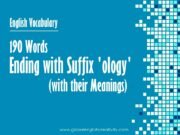
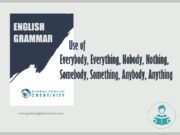
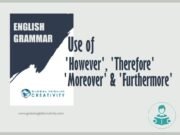
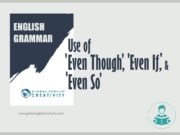




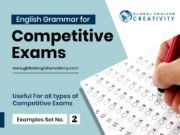
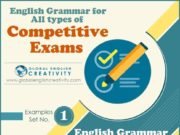

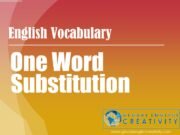

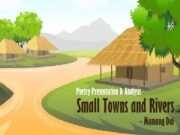

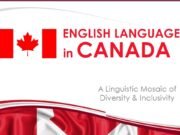
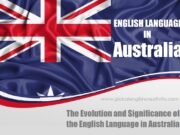

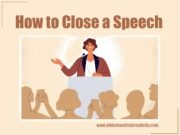
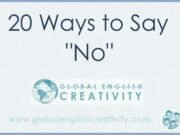
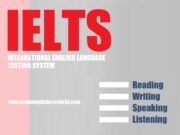
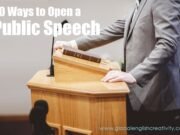
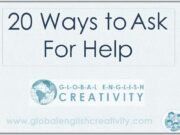






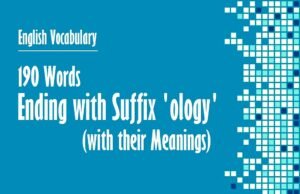










Very good. Please send all english lessons 8,9,10th ppt to me